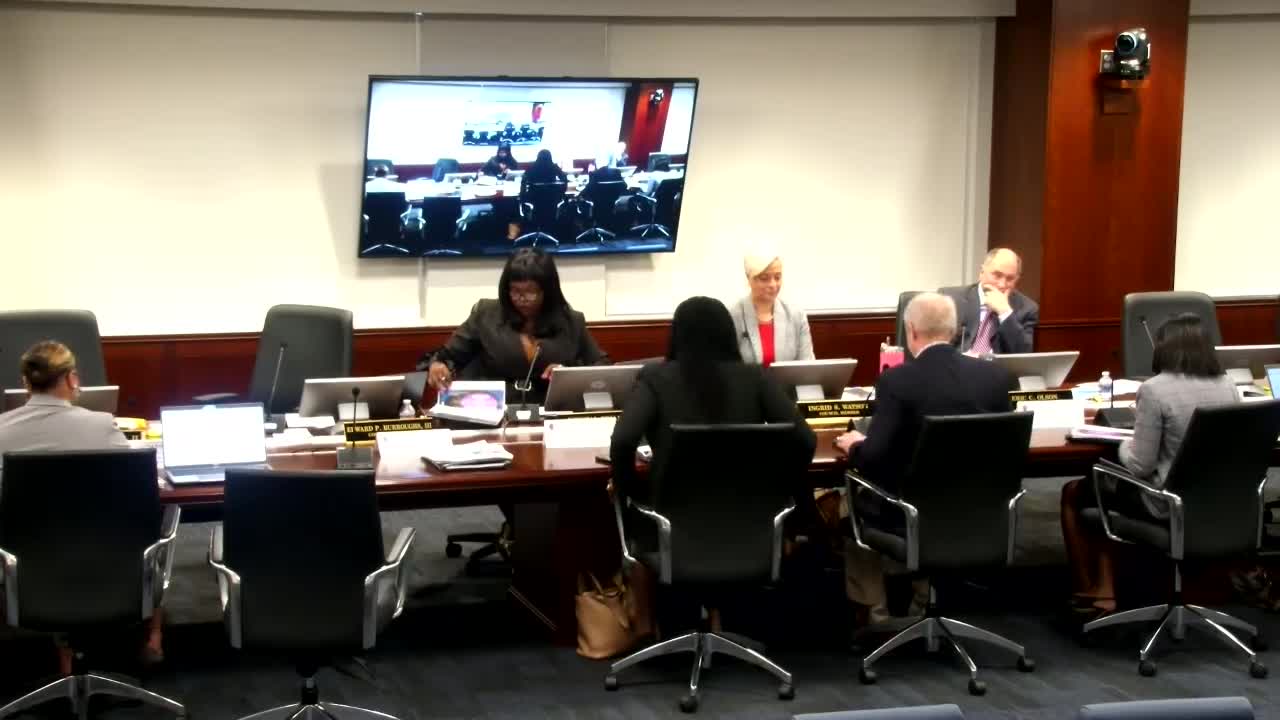Community college proposes $142.9 million FY 2026 budget; leaders flag federal funding and equity risks
Get AI-powered insights, summaries, and transcripts
Subscribe
Summary
Prince George's Community College presented a $142.9 million FY 2026 operating budget. Officials said the increase rests on state aid and tuition while county contribution holds; they warned that federal uncertainty around Predominantly Black Institutions funding and other grants could affect programs and staff.
The Prince George's County Education and Workforce Development Committee reviewed the Prince George's Community College (PGCC) fiscal 2026 proposed operating budget of $142,900,000, a $6,300,000 (4.6%) increase the college said is driven primarily by state aid and tuition and fees, while the county contribution is proposed to remain at $46,900,000 (date not specified).
Aaron Rivera, director of the Education and Workforce Development Committee, introduced the presentation. "The Prince George's Community College fiscal year 2026 proposed operating budget is $142,900,000," Rivera said. College representatives summarized enrollment trends, federal funding risks and capital priorities.
Why it matters: college leadership said proposed increases would mainly fund compensation and fringe benefits; however, officials warned that federal policy changes and pauses in grant processes could reduce revenue and affect student programs and staff funded by federal dollars.
PGCC representatives told the committee total student enrollment (credit and noncredit) has rebounded since the COVID dip but remains below FY 2020 levels; noncredit enrollment in particular is still well below pre-pandemic levels. The college identified three major federal-dependent risks: possible impacts to diversity programming tied to federal nondiscrimination interpretations, uncertainty around Predominantly Black Institutions (PBI) funding, and concerns from staff and students about potential U.S. Immigration and Customs Enforcement (ICE) activity on campus.
College representatives said the PBI designation has brought roughly $3,500,000 in funding to PGCC and that application portals for renewal had not been open at the time of the briefing, complicating FY 2026 planning. College leaders said they are conducting scenario planning and auditing programs for compliance with federal executive orders while attempting to preserve services for students.
On capital, the FY 2026 proposed capital budget for PGCC is $19,900,000; college materials cited $2,000,000 toward college improvements and an increased total project cost to finalize construction of Marlborough Hall. College leaders said they are completing a 10-year master plan and are reprioritizing capital for greater access in the southern part of the county, noting past disruptions such as a proposed Iverson Mall project that stalled during the pandemic.
Officials described program successes and risks. Dr. Williams (PGCC representative) said scholarship programs such as Maryland Promise have been reduced at the state level by $3,000,000, which the college expects will require local adjustments to preserve student aid. The college also said it is monitoring FAFSA and Department of Education processing risks following federal staffing changes, which in prior years led the college to protect students while aid processing delays were resolved.
Committee members asked for details on the college's master plan timing and capital funding schedule. An official who identified themselves as Erin said the Hillcrest branch replacement project appears in the proposed CIP with funding beginning in fiscal 2030 and most funding beyond the six-year window; the college and county staff said many capital projects are currently scheduled toward the latter half of the decade because of constrained bond markets and funding availability.
Members asked about dual enrollment and access: college staff said dual-enrollment students are subject to minimum academic criteria negotiated with Prince George's County Public Schools and that the district/college cost-sharing model has changed and is under negotiation; staff emphasized that eligible students can participate without paying tuition under the current sharing arrangements.
Officials also described targeted workforce and reentry initiatives. The college has opened a reentry-focused skills program at its Skill Trades Center in Camp Springs in partnership with county reentry services, and it runs Team Builders and other short-term credential programs intended to move returning residents quickly into employment.
No committee vote was recorded on the college budget at this session. College staff said they will continue scenario planning as federal grant windows and state-level funding evolve.
